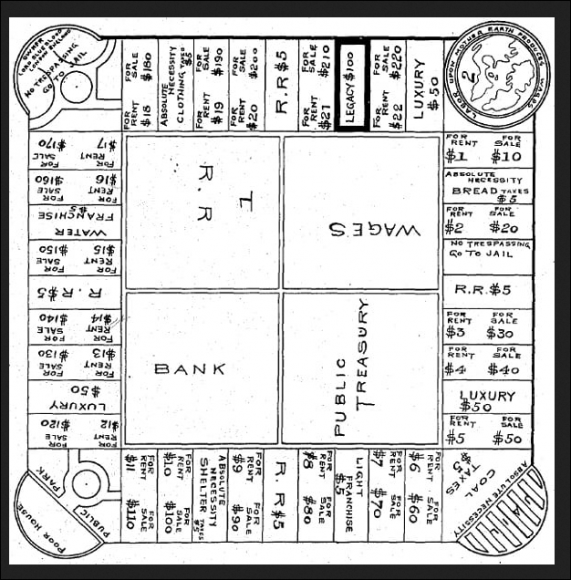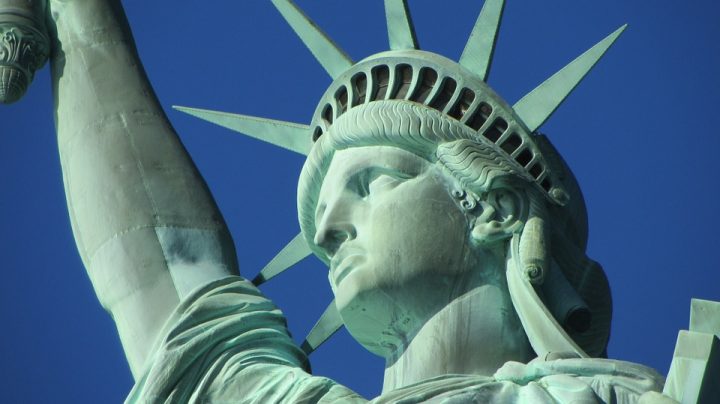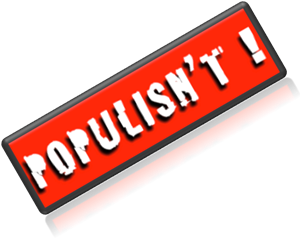Things were simpler in the past. Authority figures told us what “our” gods wanted us to believe and how to demonstrate our beliefs. They established rules and the dire consequences of disobeying. They could even prompt those consequences to occur. So what has happened since loss of that certainly?
Lexicographers and political pundits now largely agree with the definitions quoted above to describe the rise of Trump, right-wing xenophobic or ethnically-biased governments in Europe and India, or political gestures like Brexit. Populism is most often associated with conflict between groups portrayed as competing. To paraphrase, populism represents a kick in the teeth by the populace, the “common people,” to the ruling political elites.
Such definitions are not value-free. Their authors do not consider themselves “common” even while claiming to know what is good for the commoners. For an idea to become “populist” it has to be adopted by the populus, preferably by persuading them that they thought of it themselves. For that, societies have to be separated into “us” (good) and “them” (bad).
In the old days, community control was exercised by managing information. Rules of conduct covered every aspect of life. Penalties for non-conformity could be extreme. In today’s nominally secular societies, we are told that our decisions are rational and that we have to decide for ourselves what we believe. Yet many current societies are characterized by waves of conformity to certain ideas that, in the view of some experts, are our way of kicking back against (other!) experts. So how do populist ideas come about? The following ways, places and times offer some examples.
The board game – a throw of the dice
Most of us are familiar with the board game Monopoly, but few know it was originally named The Landlord’s Game and patented in 1904 by left-wing American feminist stenographer and activist, Lizzie Magie, to teach the dangers of monopoly accumulation of land and property in societies striving for greater equality.
If that doesn’t sound like the Monopoly game you know, it’s because she made it with two sets of rules. Anti-Monopoly rules encouraged co-operation and a fairer, sustainable society. Monopoly rules promoted untrammeled capitalism, generating unimaginable wealth through monopoly accumulation for a few, paid for by poverty and misery for the many. As an educational game, it sold well. About 30 years later, a devout Mormon stole the game, ditched the collaborative version, patented it in his own name as Monopoly, and earned millions. Its rapid spread world-wide fostered ideas of wealth production through massive property speculation, creating populist acceptance of the inevitability of monopoly accumulation as something to strive for.

Lizzie Magie’s original board design for the Landlord’s Game, which she patented in 1903. Photograph: United States Patent and Trademark Office (Source: Mary Pilon, The Guardian, April 11, 2015)
Around the time Monopoly was being stolen from Lizzie Magie, in 1936 Germany, board games were being harnessed as an educational tool by Joseph Goebbels, Hitler’s Propaganda Minister. He argued that, “To be perceived, propaganda must evoke the interest of an audience and must be transmitted through an attention-getting communications medium.” One board game with a populist “educational” message was promoted under the name Juden Raus (Jews Out), a frequently used Nazi slogan. Jews were represented by yellow pointed medieval caps with grotesque facial features. The aim, using two dice, a board and several figurines, was to move the Jews across a board representing a village, to “collection points” from which they would eventually be exiled “to Palestine,” leaving the village Judenfrei (free of Jews). Children soon learned it was desirable to have a society free of Jews. Populism ensured tacit acceptance.
Goebbels and Hitler left no room for doubt. Their messages struck a blow for “common people” against a privileged elite or “others” who threatened their nation’s self-image. Although no longer needing to explicitly use those words, they repeated them constantly, reinforcing the idea for the populace. Populist targets were not limited to one perceived privileged elite, the Jews. Many other “others” were targets for the actions that Nazi populism required: communists, trade unionists, Roma, African-Germans, people with disabilities, homosexuals and others fell foul of Nazi messaging, and ultimately faced the consequences of being perceived as different.
The blame game – no board required
Systems of control applied against an “other” community have existed for millennia.
To generate a populist mythology against a target community, it helps if that community is a minority with visible ethnic or other differences distinguishing it from the main community, if its legal status is controlled by some authority other than itself, and if its religion is perceptibly different from that of the grouping from which it is to be isolated. It also helps if it operates a system of schools and social, welfare, health and other facilities that appear to serve mainly its own community. If, additionally, it is perceived as achieving higher educational levels, holding important administrative positions, participating in areas of the economy that include finance and banking, distinguishing itself in professions such as medicine and law, and having close and successful links with historically-related communities overseas, its otherness is reinforced.
History shows the value, for a controlling power, of suggesting that this community’s identification and allegiances may extend beyond the host country’s national borders. If members of the targeted community also work closely with genuine holders of power, serve them in moving valuables, natural resources, money, jewels, medicine, industrial and agricultural goods, weapons and other assets over time, such leaders may well see advantages in finding ways to strip them of their privileges as a prelude to removing them officially.
This description is not of Jews in Europe at whatever time, but of Asians in Africa – mainly Indians of various religions in Uganda in the 1970s. An estimated 80,000, many Gujaratis, were expelled by Idi Amin, deploying populist rhetoric and invoking mythical national interest:
We are determined to make the ordinary Ugandan master of his own destiny, and above all to see that he enjoys the wealth of his country. Our deliberate policy is to transfer the economic control of Uganda into the hands of Ugandans, for the first time in our country’s history.
With the Asians expelled, their assets “redistributed” (mostly to the Uganda Development Corporation controlled by Amin), their administrative skills and capabilities lost, the Ugandan economy effectively collapsed. Who gained? In Uganda, in the short term, Idi Amin and cronies.
However, there were other longer-term beneficiaries. The majority of refugees went to Britain, a few to India and neighbouring countries, some 6,000 to Canada. Hard as it may have been for those expelled Asians, their new host countries gained enormously from the influx. I remember working with my parents to help arrange accommodation for arriving Asians in 1972 (as we did with Chileans in 1973). Some Asians never left, because Amin needed them and granted them special status. Ironically, Asians are now back in Uganda in increasing numbers and in similar positions to those from which they were driven. A decade later in Kenya I witnessed the same anti-Asian xenophobia triggered until the Kenyans decided the Somalis were their real enemy and switched targets.
The numbers game – marauding hordes
Where tales of privilege cannot be invoked, populist arguments about threats from poor, disadvantaged groups can, summarized as: “They’re criminals and rapists, coming here to steal our jobs and women, exploit our services, and not contribute.” And perhaps scariest of all, “They’re going to outnumber us.”
Beyond the Indian Ocean, we hear these populist fables recounted against Rohingya Muslims by Myanmar’s Buddhist majority, with horrendous human consequences on an almost inconceivable scale. Bangladesh, housing the world’s biggest refugee camp, bears much of the brunt.
Arguments being deployed about the Israel/Gaza border are no different. As I write, Mark Regev, Israel’s new ambassador to Britain (the Israeli government’s former long-standing media spokesman), is on the radio justifying Israeli soldiers shooting unarmed Palestinians on the Palestinian side of their wall. Claiming they were armed with wire cutters and Molotov cocktails, he invokes the marauding hordes populist threat. Regev adds a new twist, accusing Hamas of leading “a theocratic administration.” It takes one to know one. The weakness of that populism-eliciting criticism is that for both Israelis and Palestinians, their Theos is the same God.
The crying game – huddled masses
Across the Atlantic, back in time, we find examples of a kinder, more welcoming populism. As part of the fund-raising campaign for the pedestal of the future Statue of Liberty, Emma Lazarus, a widely respected poet from one of New York’s first Sephardic Jewish families was persuaded in 1883 to write a poem reflecting and nurturing contemporary, positive, populist American attitudes. The lines most quoted are attributed to the statue herself, The New Colossus, as she welcomes immigrants sailing into New York:
Give me your tired, your poor,
Your huddled masses yearning to breathe free,
The wretched refuse of your teeming shore.
Send these, the homeless, tempest-tossed to me,
I lift my lamp beside the golden door!
It is hard now to remember the pride ordinary US citizens felt then about their openness to immigrants, and the welcome they offered people fleeing different vicissitudes to build a new future in and for a new country. It is a pride still commonly expressed in Canada.
Among those huddled masses, one man found the immigration process so rewarding he undertook it twice. Friedrich Drumpft of Kallstadt, Bavaria, first immigrated as a 16-year-old draft dodger, rapidly achieving one American dream – wealth – through property speculation and by running premises for prostitution. He described that as “mining the miners.” Having made plenty of money, he returned to Kallstadt, got married, and might have remained there had the Bavarian authorities not decided to prosecute him for evading military service. He emigrated again to the USA, followed the Monopoly rules, acquired land, built properties and became very rich.
His grandson is far less keen on immigration. The latter’s undoubted popularity is in large part based on many of the negative populisms described above. Donald Trump’s public utterances identify threats from marauding Mexicans arriving en masse or marauding Muslims intent on massacre. Using words similar to the Myanmar Buddhists’, he depicts rapists, murderers and drug dealers coming to steal jobs and women from real Americans, or terrorists intent on wiping out US citizens. His solutions include building a wall (as in Austria, Spain, Israel and Pakistan), expulsions, and restrictions limiting the status and human rights of immigrants and refugees.
If Emma Lazarus had known then what her support for immigration would lead to, might she have tempered it?
The name game – Québec
The Canadian government used to publish Canada News, a free monthly newspaper in London. Before moving to Montréal in 1990, I studied the final 1989 issue. It included a Canadian social attitudes survey showing that on every social parameter except one, Québec was more progressive than other provinces. The exception? Anti-Semitism was orders of magnitude higher in Québec than elsewhere. I did not believe it.
On my arrival, populism in the form of Québec nationalism was manifesting itself in a way I had not expected, reminiscent of descriptions I had read of the history of Jews in Nazi Germany. The youth wing of the Parti Québecois had organized an apparently innocent photographic competition, awarding prizes to the young photographer who could photograph the highest number of shops displaying signs in English. I remember commenting to my then new friend and colleague, Maya Khankhoje (on Serai’s editorial board), that the next step would be for those shops to find their windows smashed. That’s what happened.
In my first month in Montréal, I visited a housing exhibition at the Olympic Stadium, spotted the Office québécois de la langue française, and collected documentation about Bill 101, Québec’s French language charter, of which I knew little. Some days later, invited to a pleasant dinner with some German colleagues at the home of a “refined” French-Canadian colleague and his English wife, I mentioned my visit and the documents. I said that Québec’s language laws reminded me of nothing less than the racial purity laws of Nazi Germany: where Hitler had decreed primarily Aryans and non-Aryans, Québec had mandated Francophones, Anglophones, and Allophones.
My colleague’s reaction still startles me. “Oh yes! A lot of people said that back in the 1970s but most of them were Jews and they left. They went to Toronto.” In one sentence he had brought in populist, racist, anti-Semitic tropes, and demonstrated another factor: how often the dissemination of populist ideas is linked to spreading concepts of threats to the dominant religion. That same week, a real estate agent showing me a nice square in Outremont mentioned, unasked, that until 1957 no Jews were allowed to buy in that area. I ended up in Charlevoix.
I arrived in Montréal from Brussels where I, like many others, worked in and celebrated multiple languages and cultures. Québec/Belgium comparisons could provide material for many articles. The only linguistic discrimination I experienced in Montréal was on a CÉGEP de Rosemont community radio course run by Radio Centre-Ville. One participant objected that my French sounded too French, claiming I was therefore a plant, infiltrated by the federal government to spy on them. Fortunately nobody supported his demand that I be expelled.
The shame game – BREXIT
The London I left in 1990 celebrated its ethnic, cultural and linguistic diversity. Over 120 major mother tongues were then spoken, and programs to teach the mother tongue of parents were encouraged and funded. (A primary school of which I was a governor was proud of its 74 language groups.) The London to which I returned in 2004 was transformed. The press, almost exclusively conservative/Conservative and traditionally xenophobic and anti-Semitic, was now attacking immigrants who kept their mother tongues active and maintained contact with their countries of origin. Many newspapers had long taken pride in their anti-immigrant credentials. Others, and most broadcast media, had celebrated immigrants’ contribution to British society. Under Thatcher, that balance shifted. No longer were immigrants represented as coming to build up, but instead portrayed as invading to tear down Britain’s “true” culture and traditions. They were, of course, bleeding our welfare system dry and taking our women, jobs, money and housing. Our only salvation, we were told endlessly, lay in Brexit – British exit from the European Union. A referendum was held, allowing people to vote on that possibility.
The new xenophobic populism was directed at Eastern Europeans and the real villain of the piece: our Evil Empire, the European Union. Official statistics showed none of the accusations were true: overall, migrants from Eastern Europe were making a major fiscal contribution while filling vacancies in important growing sectors such as care, which indigenous Brits shunned. European migrants took little welfare and had become so integral to the healthcare, education and hospitality sectors that public services could not survive without them. Those official statistics, then ridiculed as “fake news,” have since proven to be true.
The Britain I find myself in is subject to ceaseless propaganda mostly against the EU, immigrants, ethnic minorities, and scroungers (“deadbeats” in the US). During the Brexit campaign, experts who provided statistical evidence that financial, political and numerical claims made for Brexit were untrue became the new enemy. Subsequent court judgements upholding their criticisms of the campaign as dishonest or illegal and affirming that the Brexit vote does not override established laws (especially on human rights) have led to front-page banner headlines describing British judges as “Enemies of the People.”
Populist claims promoting the benefits of leaving, usually unsubstantiated, were reported as truths. Disagreement was derided as “Project Fear.” The Leave Campaign drove a bus around Britain promising savings of £350 million per week to pour into the National Health Service. Experts who challenged that figure were ridiculed. As it soon became clear, however, the promises were meaningless and were dropped as soon as the Brexiteers won. But the populist arguments (if they can be considered arguments) were less worrying than the consequences. From the moment the result was announced, outbreaks of overt racism started to become commonplace. Physical ethnic aggression erupted on a scale not seen for decades, including attacks on institutions (such as a Polish cultural centre in West London) and on individuals.
Second- and third-generation Asians who had never previously experienced racism found themselves under assault. Strangers in the street asked them when they were leaving. Many such Asians, in a typical populist action of pulling up the drawbridge behind them, had been persuaded to vote for Brexit as a way of keeping out European immigrants.
During the referendum campaign, it was implied that Commonwealth immigrants, particularly Africans, Caribbeans and Asians, were such an integral part of British society that they would be all right. Obviously they weren’t the new enemy, i.e., “European.” It has since become clear that to racists and xenophobes, the newness of immigrants is not what offends. It’s otherness. Although physical attacks have diminished, many Asians remain uncomfortable. Now Britain is rocked with a new scandal, the racist “hostile environment” policy created by the present Prime Minister when she was responsible for immigration. Theresa May, courting populist votes, hired a loudspeaker truck to drive around London threatening immigrants with deportation. She set in motion a program that has extradited hundreds of former Commonwealth citizens, mostly black, who had lived in Britain for up to 60 years and who were legally entitled to be there.
The computer video game – servers of violence
To the amazement of many, the past year has seen a massive resurgence of interest in board games, although for the past two decades, video and computer games have dominated. Some are genuinely educational and collaborative. Sadly, most bestsellers are based on war, competition, violence, discrimination and prejudice. Many make the Juden-Raus idea of rounding up Jews into concentration camps for deportation and ultimate annihilation look tame. Using a combination of action, competition and brutality, such video games foster negative populist attitudes. This is such a vast field I will mention just one example briefly to show how easily populist messages can be confused and misused.
One game touted as anti-Nazi and anti-fascist is among the most inventively violent on the market, and adopts the title of Emma Lazarus’s poem, “The New Colossus,” to make its point. Set in an alternative future in which the Nazis won World War II, it lionizes heroic anti-Nazi fighters. Without players knowing real history, it easily becomes another populist message identifying governments as fascist, where violence directed against governments can be justified. Just such an alternative future was the basis of a 1978 book. The Turner Diaries described a USA in which a black man had been elected President and banned gun ownership. Brave patriots taking a stand against this new order accumulated guns and explosives and attacked centres of government. This might not have mattered had the book not become required reading for various right-wing US groups.
One such reader was Timothy McVeigh, non-immigrant, white US citizen, who in 1995 blew up the Murrah Federal Building in Oklahoma City, killing 168 people (including many children). When questioned about the casualties, McVeigh said, “I didn’t define the rules of engagement in this conflict. The rules, if not written down, are defined by the aggressor.” His belief in the populist message “government = bad” meant that he viewed the people he had killed as “the aggressor.”
As US school and mass shootings reach unprecedented levels, many young perpetrators hone their firearms skills on digital games before applying them in the flesh. Massively growing use of firearms in the USA (and to a lesser extent elsewhere) is buttressed by populist messages about gun ownership as a human right, particularly against the backdrop of the “evil repressive state.”
The greatest driving force behind this populist idea is a group whose website describes it as “America’s longest-standing civil rights organization.” Founded in 1871, this group has informed members about firearm-related legislation since 1934 and has been one of its most active lobbying groups since 1975. Perceived by many as the most influential US lobbyist, it is none other than the National Rifle Association. In addition to NRA public messaging, it pays – sorry, contributes – millions of dollars per year directly to US politicians and their election campaigns. Its “contribution” was estimated at $54 million to secure control of Congress in 2016, with $30 million to Presidential candidate Donald Trump.
Fair game – set and match – real populism?
After this catalogue of horrors, two tales of positive populist fightback offer some light relief.
In 2004, the CBC organized a national poll to identify The Greatest Canadian, based on a 2002 BBC series. Great Britons had identified Winston Churchill – probably the 20th century’s most hated British Prime Minister, perhaps on par with Margaret Thatcher – as the Greatest Briton. In Canada, the result was very different.
Nominations were taken and preliminary votes conducted, producing a shortlist of ten. Media insiders were sure the winner would be Wayne Gretzky, then a national hockey hero. The Canadian voting public had other ideas. It voted resoundingly for a Scottish-born, social-democratic politician, first federal leader of the New Democratic Party, Saskatchewan’s Tommy Douglas, known and revered for introducing Medicare nationally in 1961.
The other story is from Britain where, in 2005, intellectual BBC radio weekly chat-show host, Melvyn Bragg, conducted a poll to identify the greatest philosopher of all time. Over a 5-week period, it received almost one million votes. As the deadline approached, Bragg started to panic. He put out appeals for support for nominees other than the then frontrunner. His pleas were futile. With a vote of 28% (twice that of his closest rival), the choice was Karl Marx.
These two anecdotes illustrate one other thing about populism. It is true that Canadians voted against the media elite telling them whom they were to choose. They chose someone representing what they admired. Similarly, BBC audiences rejected the plea from the media expert who did not want them to choose Marx (although some suggest he knew such an appeal would boost votes for Marx.)
But if the votes were truly populist according to the flying pig definitions above, they would have led to change. The Douglas vote would have translated into massive increases in Canadian public investment in Medicare (not in private companies making profits from it), and the Marx vote would have heralded the installation of a socialist government in Britain. Maybe timescale is crucial. Perhaps both these things will happen. I would like to think so.
Media mythology says populism brought the world Trump, Macron, Modi and many others, in shock votes against establishment power structures. But are a property mogul, investment banker and millionaire who relentlessly pursue policies favouring the one per cent over the ninety-nine really kicking back against ruling elites? Maybe we should modify that wonderful adage by Emma Goldman to read, “If populism changed anything, they’d make it illegal.”











